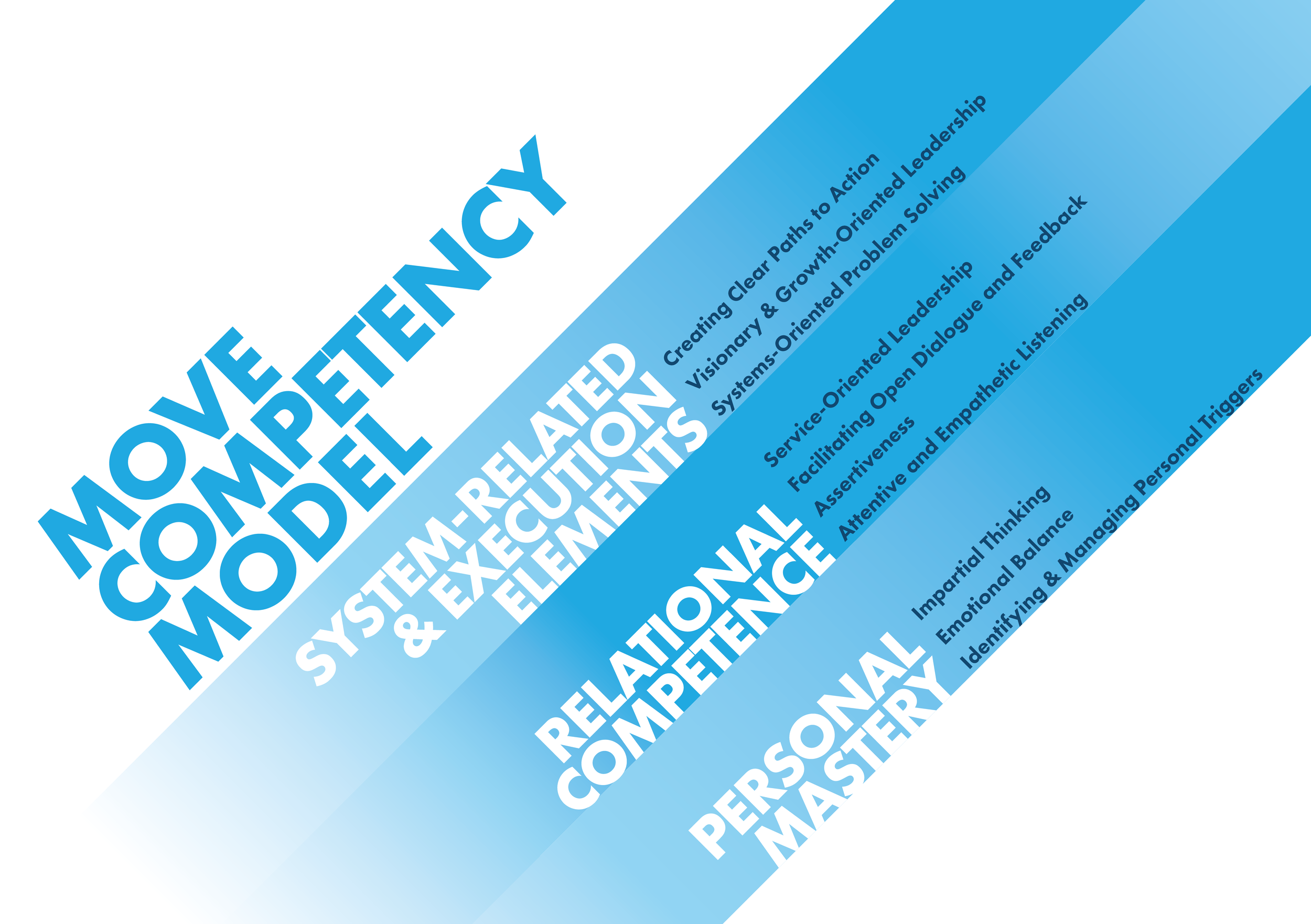Essential
Traits
The MOVE Competency Model defines the mindsets, skills, and traits essential for needs-focused leadership in projects.
It groups these into three interconnected categories: System-Related & Execution Competencies, Relational Competencies, and Personal Mastery Competencies.
While each competency has unique emphasis, they work together to create a leadership style that combines operational excellence with human-centered engagement.
System-Related & Execution Competencies
These competencies align project execution with broader organizational strategy while addressing the human dynamics that influence performance.
-
Uses holistic, systemic thinking to identify root causes, anticipate resistance, and design effective solutions. Balances operational demands with relational needs, integrating creativity, adaptability, and strategic alignment.
-
Aligns team efforts with purpose-driven goals, fostering innovation, accountability, and long-term partnerships. Encourages continuous learning and ethically grounded decision-making.
-
Translates needs into structured, actionable plans. Promotes clarity, role alignment, and effective delegation while ensuring sustainable outcomes.
Relational Competencies
These focus on building trust, promoting collaboration, and maintaining a healthy team climate.
-
Prioritizes individual needs while achieving project objectives. Encourages autonomy, psychological safety, and personal growth through coaching and recognition.
-
Clearly and respectfully expresses needs and boundaries, using Nonviolent Communication (NVC) to maintain constructive dialogue. Balances courage with empathy.
-
Creates an environment of psychological safety, encouraging two-way communication, humor, and shared learning. Uses mediation and moderation skills to strengthen trust.
-
Listens actively and without judgment to fully understand others’ perspectives. Reads emotional cues accurately and responds with genuine empathy.
Personal Mastery Competencies
These underpin a leader’s ability to remain grounded, fair, and effective in complex situations.
-
Uses self-awareness, mindfulness, and reflection to stay neutral in emotionally charged situations. Recognizes emotional contagion and maintains healthy boundaries.
-
Maintains composure under stress, demonstrates resilience, and supports mental health awareness within the team. Balances optimism with realism and uses humor constructively.
-
Ensures fairness, objectivity, and inclusivity in decision-making. Manages personal biases transparently and considers cultural, generational, and neurodiversity perspectives.
Competency Priorities and Development
In the MOVE research, nine of the ten competency elements were ranked by project stakeholders based on their perceived importance for needs-focused leadership:
Service-Oriented Leadership
Impartial Thinking
Systems-Oriented Problem Solving
Creating Clear Paths to Action
Identifying & Managing Personal Triggers
Assertiveness
Facilitating Open Dialogue & Feedback
Emotional Balance
Attentive & Empathetic Listening

